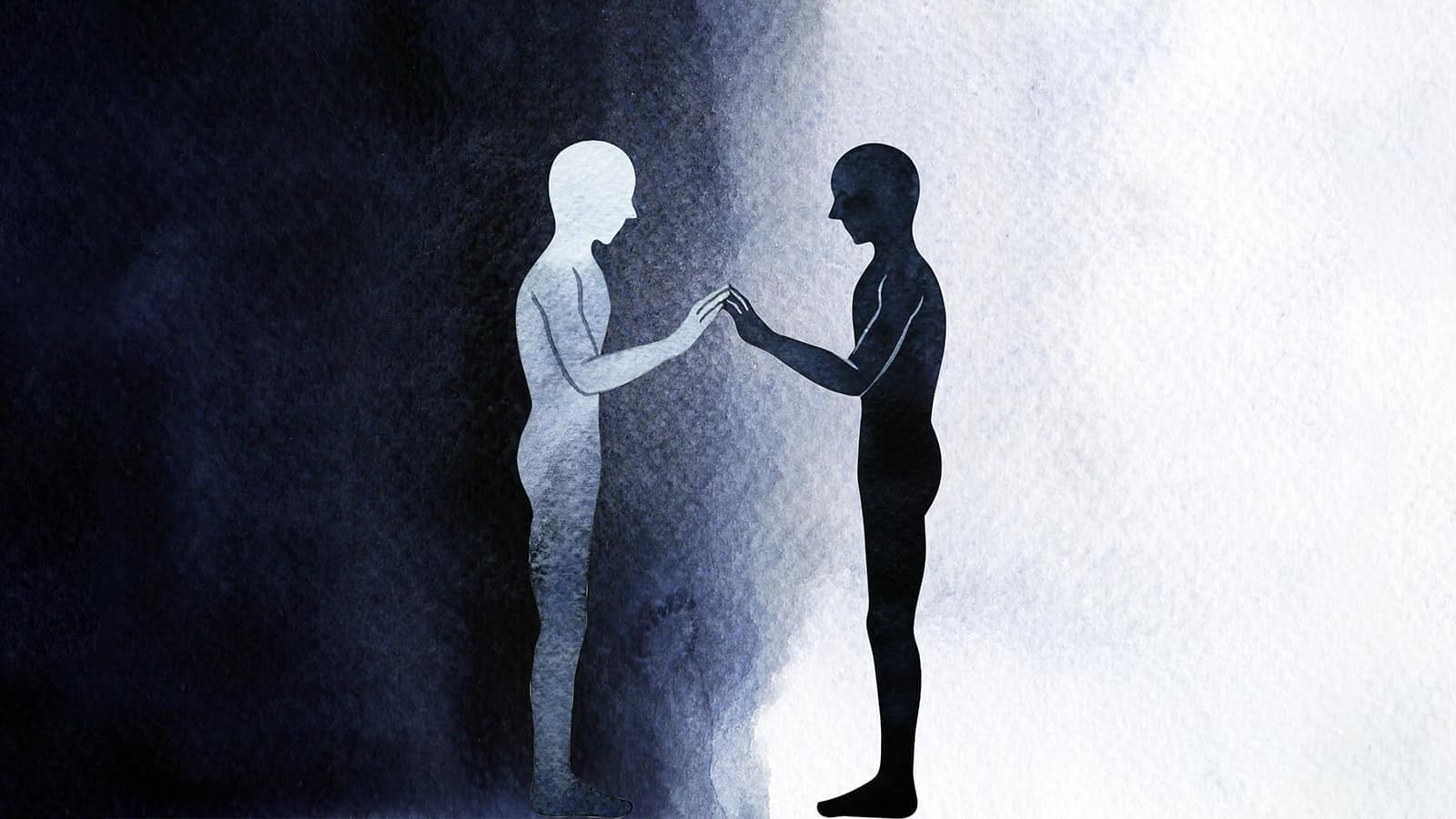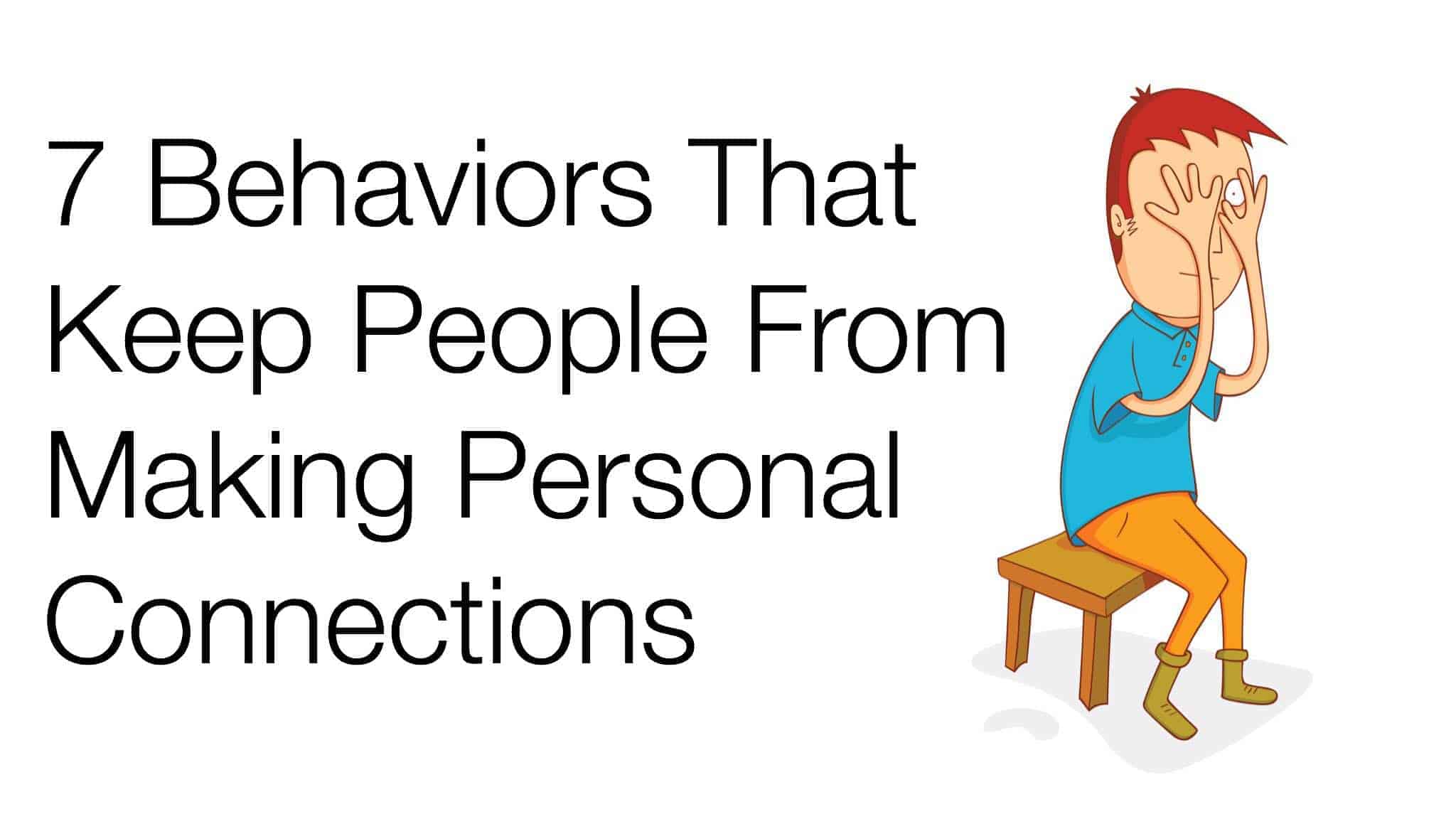Most, if not all of us, have had people in our lives that we connected with, whether it was a family member, boyfriend/girlfriend, lover, spouse, or best friend. Yet, it seems harder and harder as we get older to build more of these connections. Why is this? The Earth has over 8 billion people on it. We come into contact with about 250 people a day and usually work with about 5+ people on a daily basis. Yet, we find that creating a new connection eludes us. A flurry of questions may haunt us at our most vulnerable, lonely hour about why, despite coming into contact with various people throughout our day, we still feel distant from them. The answers may or may not be that simple, but here are 5 of our best tips on how to fix bad connections in your life.
Here’s why people are bad at making connections (and how to fix it):
1. Understand the difference between a relationship and connections.
“What are you talking about!? I have friends and relationships!” you may think to yourself. Yes, you most likely do, yet a relationship and a connection are two separate things. What is the difference between a relationship and a connection? Don’t you need a relationship to have a connection? Yes, and no.
Relationships
With a connection usually comes a relationship, but the reverse is not always true. The definition of a relationship is rather vague as it must cover a variety of ways in which people may relate to each other, and only in two definitions is the word “connection” used. An example of such a relationship would be that you may be neighbors with someone, therefore connected via location. You may go out with co-workers, which is a relationship in which you’re connected by where you work. You may be in a sexual relationship and are connected by a physical need or attraction.
“I believe people begin their dating experiences by searching for a connection, but get confused into seeking a relationship instead. As one of my coaching clients identified with me yesterday, we learn to accept the belief that a relationship creates and guarantees the feeling of connection. We mistakenly see relationships as the source of connection.” – Dan Munro, The Inspirational Lifestyle
This concept holds true not just for dating, but also friendships. Essentially, in our search for connections, we find relationships that may not have the elements of a connection but do satisfy our need for a social interaction. All relationships have their importance in our lives, but not all relationships can or should equate to a connection.
Connections
With each of the above examples, should the commonality change, the relationship changes and may eventually no longer exist. In contrast, a connection in which it is “a state of being connected” means that circumstances around how you met, things you have in common, location, etc. can change but the connection remains. The connection itself has its own state of being just like water is still comprised of bonded H2O molecules regardless of if the water is in a solid, liquid, or gaseous form. Being able to recognize a relationship as it is and why it exists, compared to a connection, is essential in being able to leave yourself open for connections.
2. Be your authentic self.
We all have been hurt emotionally in our lives and, generally speaking, the longer we live, the more hurt we accumulate. With that hurt comes distrust, defensive actions, barriers to keep others from getting too close, anger, fear, and negativity towards others and life itself. This all builds up and may show itself by isolating oneself, only allowing casual relationships, having failed relationships, physical illness, decreased confidence, and decreased successes in life, to name a few.
Most importantly, it prevents us from being our authentic selves with love, compassion, respect, and honesty. We make the choice to focus on impressing others through artificial means: how we dress, exaggerated accomplishments, showing off places we have been or things we possess. We may even lose sight of who our authentic selves are in this process. Therefore, only others like us will be attracted to us. If we are unable to be our authentic selves, then we can only attract others in a similar state.
You need to be willing to be honest with yourself and face the hurt and pain in order to find yourself and heal your heart. You can do this through various therapies: psychotherapy, hypnotherapy, EFT, NLP, engaging in affirmations and positive thinking programs, prayer, and so many more. It can feel like a long and difficult journey. In the end, though, your heart will heal, allowing it to open to receive genuine relationships and connections into your life.
3. Ask, listen, and feel.
Remember that man or woman you met who only talks about trivial information, like the latte they had that morning? They seem to talk a lot but don’t let you get a word in edgewise. You end up stuck, standing in front of them and nodding your head or giving the occasional “Uh huh” or “Yeah.” Most likely, you really don’t know anything important about them or feel any connection to them. The way we ask questions, listen, and emotionally relate to people greatly influences how we connect.
How do we know if a man or woman has interest in us? They ask about our lives, our family, our thoughts, our likes and dislikes. Then, they truly listen without interrupting and continue the conversation – showing they understood what you had to say by relaying something about themselves or expressing emotion towards what you said.
That person is working at creating a connection by asking genuine questions that evoke personal information. By doing so, they reflect back that they listened, understood, and willingly show their own emotions regarding the conversation. Open yourself up and ask genuine questions of the people around you. Then, listen and express feedback. You may feel surprised what barriers break down that can allow for a connection!
4. Smile, with your eyes too!
The universal sign of inviting others into your space and life is the simple, glorious smile. The person who walks into a room with their head up and a smile on their face is most likely to attract more people to them and therefore increase the chances of making a connection. They are already displaying an open heart and willingness to let others in.
The next most commonly recognized body language in a majority of countries is making eye contact. It reflects confidence, honesty, and a curiosity about those around them. Unless a person is specifically trained, only those with social anxiety or who have something to hide will avoid eye contact. Practice walking into your office, the grocery store, your child’s school, or anywhere smiling and making eye contact; you will visibly see the difference in how people react to you.
5. Build on smaller connections.
There are multiple ways to connect to people. Like a web, the more points we connect with, the stronger the connection is. You may connect with someone intellectually because they understand how you think and what you think about. Yet, they may not understand you emotionally; for example, why you have certain reactions, or feel a certain way toward something in life that they do not. The various ways to connect are intellectually, emotionally, spiritually, and psychologically.
Recognizing where you do connect and then working on ways to develop some of the other ways can help strengthen the connection. This then goes back to asking questions and listening as well as being open-minded and respectful. Not everyone sees the world in all of its complexities the same. Yet, the more you know about someone and accept their differences with respect, the more gates should open.
You don’t have to agree with the perception; you do need to be able to understand where they are coming from. This starts the path to compromise in people, which is like building a bridge to another plane of existence. You can learn and grow together, which always strengthens connections.
Final thoughts
These 5 tips are like street signs to help you invite, welcome, and embrace connections. There is no reason to go through life feeling disconnected, alone, or lonely. We are each connected to multiple people throughout our lives, and there’s always room for making deeper connections with them. Many people want relationships with depth, but fear closeness at the same time. Of course, healthy relationships cannot exist when both love and fear play dominant roles.
If you want deeper connections with people, focus on getting rid of fear and limiting beliefs that cause friction in your relationships. Once you remove the barriers to love and compassion, you will find that your capacity for love expands beyond your wildest dreams.














 Community
Community

